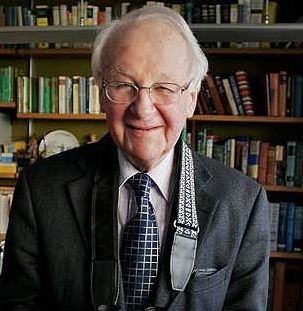John Stott called home
The Revd Dr John Stott, one of the most influential evangelical leaders of the twentieth century, passed away on Wednesday afternoon at the age of 90.
 During the long and active years of his life Dr Stott’s writing and preaching helped millions of Christians gain a deeper understanding of their faith. During the long and active years of his life Dr Stott’s writing and preaching helped millions of Christians gain a deeper understanding of their faith.
Evangelical leaders have rushed to pay tribute to the man credited with helping lead a resurgence of evangelicalism in Britain.
Greatest
Chris Wright, International Director of the Langham Partnership International, said that Stott “was one of the greatest leaders God has given to his people, and yet at the same time, one of the humblest men on the face of the earth.
“He was, for all of us who knew him, a walking embodiment of the simple beauty of Jesus, whom he loved above all else.”
Steve Clifford, general director of the Evangelical Alliance, said: “He will go on to be remembered as one of the leaders of the evangelical movement and will continue to have an impact for generations to come.
Rejoice
“While we mourn the loss of our brother in Christ, we rejoice that he has gone to be with the Lord he so loved.”
Dr Billy Graham said: “The evangelical world has lost one of its greatest spokesmen, and I have lost one of my close personal friends and advisors.
“I look forward to seeing him again when I go to heaven.”
Missed
Dr Geoff Tunnicliffe, of the World Evangelical Alliance, said that Stott would be “greatly missed”.
Dr Stott believed that God wanted to see the Church grown in maturity and not just numbers. This was a major emphasis of his work.
He founded the London Institute for Contemporary Christianity in 1982 with the core belief that every part of life comes under the Lordship of Christ, and that all of life is a context for worship, mission, ministry and active Christian engagement.
Influential
Dr Stott, former Rector at All Souls Church, Langham Place in London, was also one of the founders of the Lausanne movement, a worldwide movement of evangelicals.
He also championed the pro-life movement, and in 1984 he agreed to become a patron of the charity Life.
During the course of his life Dr Stott penned more than 50 books which helped to explain complex theology in a way accessible to ordinary people. These included Basic Christianity (1958) and The Cross of Christ (1986).
In 2005 Dr Stott was named as one of the 100 most influential people in the world by Time magazine.
Ed footnote:
While endorsing all that has been written above, Dr. Stott also created some controversy during his ministry.
In the very public disagreement in 1966 at the National Conference of Evangelicals – in his role as chairman and from the platform – he flatly contradicted Dr. Martyn Lloyd-Jones who called for believers to leave what the latter saw as their 'compromised' churches. (Ironically Stott has been recently reported as saying that the issue of sexuality is a 'leaving' matter.)
Stott also threw his devotees in the evangelical world into a tailspin in 1988 with his comments about the doctrine of annihilation – the belief that the souls of unbelievers are annihilated instead of eternally and consciously judged. (As an almost-immediate response David Pawson wrote a rebuttal in a book entitled 'The Road to Hell'.)
Most recently Rev. Stephen Sizer, in his book 'Zion's Christian Soldiers', used a previously-unpublished sermon by Stott in support of the view of both these men who advocate Replacement Theology.
|